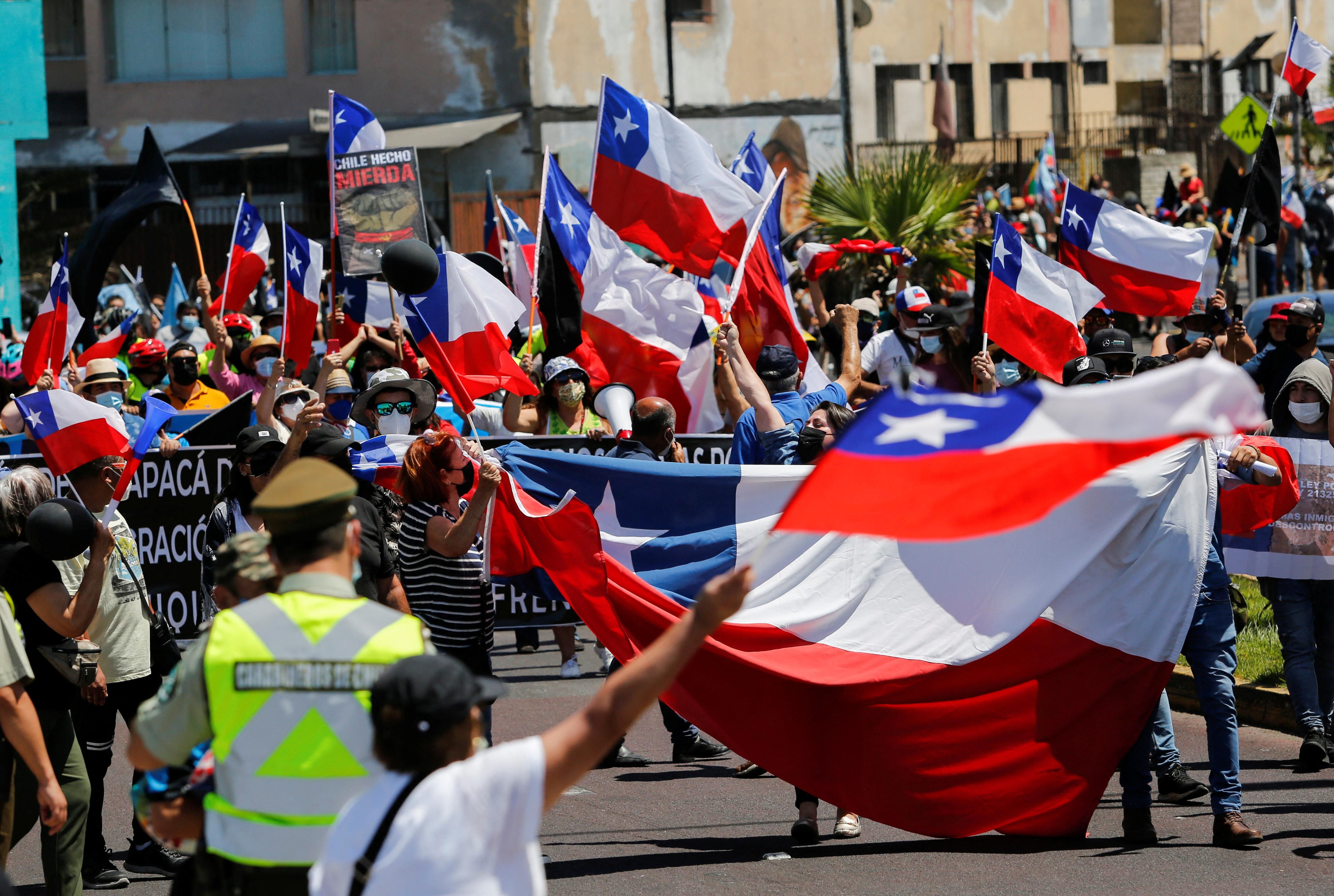Hard Numbers: Chileans protest Venezuelan migrants, US rent on the rise, Myanmar coup anniversary, Benefits of Brexit
4,000: More than 4,000 Chileans demonstrated Monday in the northern city of Iquique against migration from Venezuela in response to a video of Venezuelan criminals attacking Chilean police at a checkpoint. Chile, one of South America’s wealthiest states, has seen a recent influx of migrants fleeing Venezuela’s deteriorating economy.
40: Pandemic-related economic disruption upped rent by as much as 40 percent in some US cities last year, forcing thousands to find alternative living arrangements. Many local rent freezes and eviction moratoriums have expired, leaving lower earners vulnerable to homelessness and subsequent health risks.
1,500: Around 1,500 people have been killed since Myanmar’s military staged a coup one year ago. Against the backdrop of sustained popular resistance, political stalemate persists, and the generals continue to quash all dissent.
100: The UK government has released a new 100-page Benefits of Brexit report, outlining “how the EU is taking advantage of the UK leaving the EU.” This comes as London is preparing new legislation that will override some EU laws that remain in place.